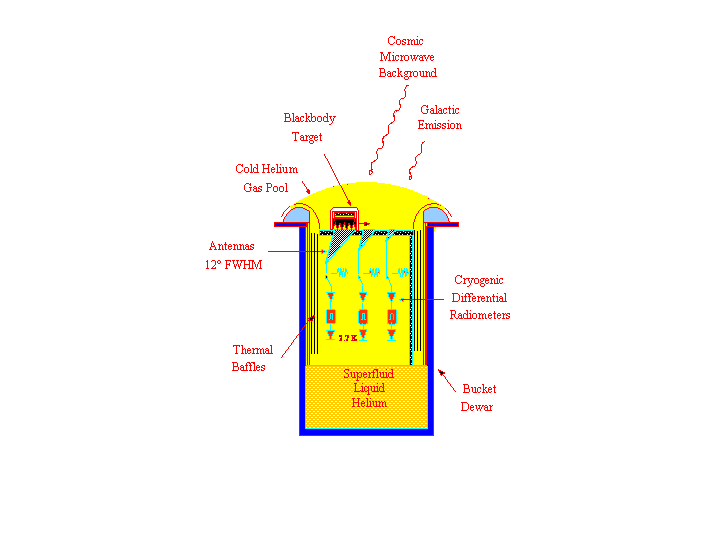 |
 |
ARCADE Instrument
Imagine standing outside on a cold winter night and trying to warm your hands
by holding them out to the stars. Not a very warming prospect, is it?
Now imagine that the stars are moved away from us, far from our Milky Way
galaxy, and are instead located at the other end of space and time.
That's the problem that the ARCADE team must address -- detecting the
heating of the universe by the very first stars.
ARCADE must measure temperature differences as small as 1/1000 of a degree
in a background only 3 degrees above absolute zero. The problem is not
sensitivity, but confusion: everything else in the universe, including
the Earth and the balloon payload, is hotter than the microwave background.
Room temperature objects, for instance, are 100 times hotter than the
microwaves ARCADE must observe, and 100,000 times hotter than the signal
from the first stars. If ARCADE is to reliably measure the
microwave background with accuracy of 0.001 K, the total contribution
from the rest of the world must be made smaller than this limit.

ARCADE is designed to reduce or eliminate these unwanted "systematic errors"
from the rest of the world:
The entire instrument is cooled with
liquid helium
to 2.7 degrees
above absolute zero. If the instrument is the same temperature
as the microwave background, it can not contaminate the signal.
The instrument has an unobstructed view to deep space, with nothing
warm allowed between the antennas and the sky. If there are no
warm objects in the beam, there will be no signal contamination.
The instrument uses multiple levels of comparison to eliminate
any residual contamination. Each
radiometer
continuously compares
the signal coming in through the antenna to a stable internal
reference load. Each antenna alternately views the sky or a
precision blackbody calibration target.
All of the different
frequency channels view the same target. Since the target is
known to be a precise blackbody, by comparing the output when
the antennas view the target to the output when the antennas
view the sky, we can immediately tell whether or not the sky is
also a blackbody.
|
|


